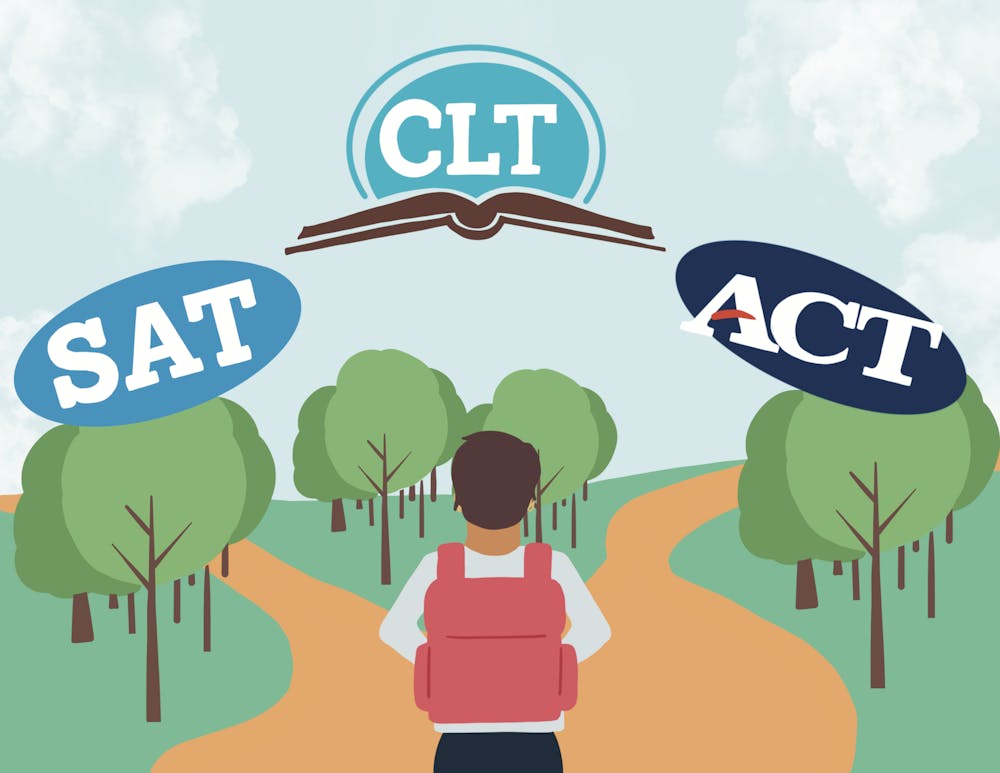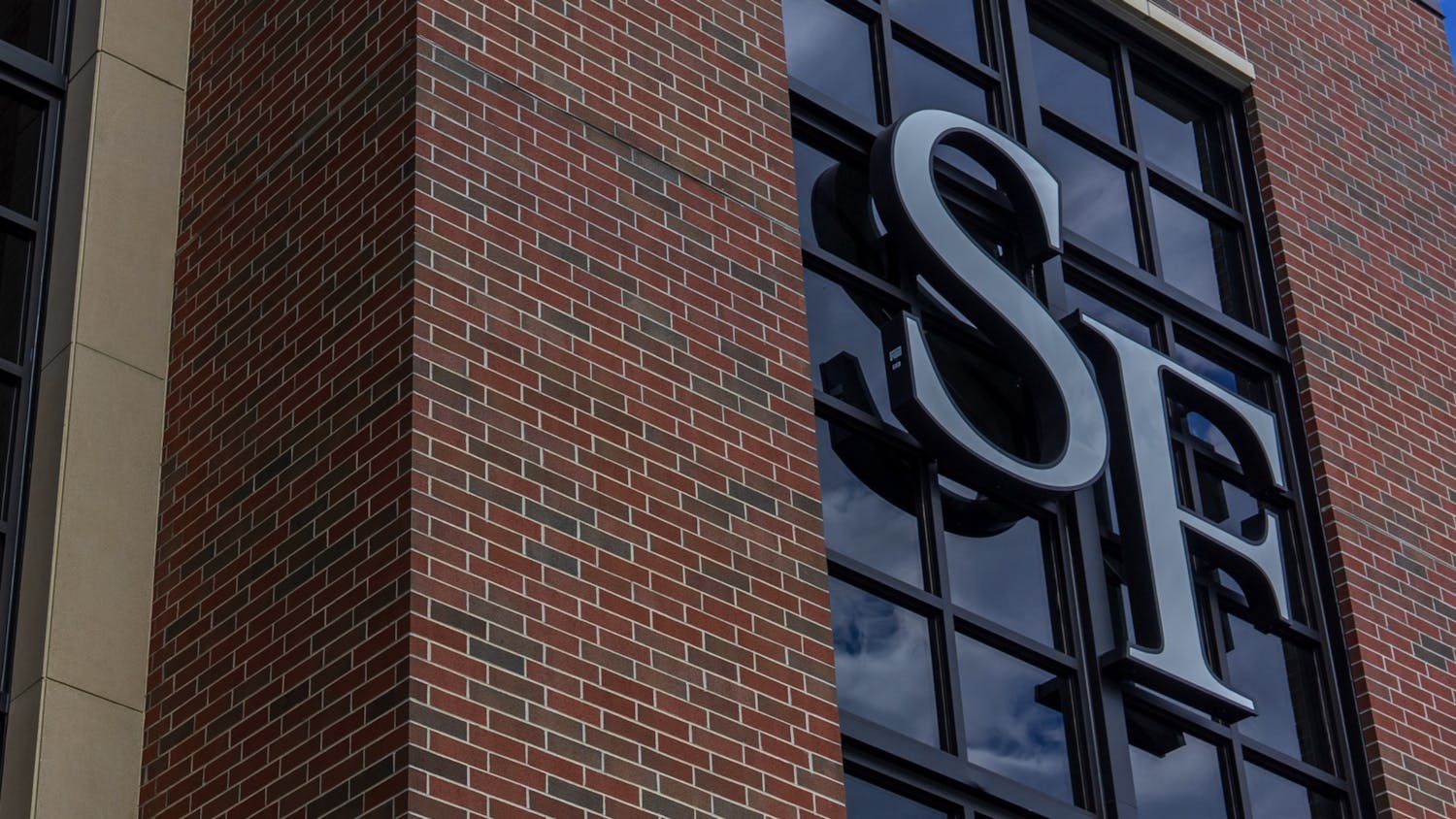CORRECTION: The amount of Florida schools accepting CLT prior to Sept. 8 has been updated to reflect the correct figure, 12. The Alligator reported otherwise.
UF joined 11 Florida schools in becoming the first state university system in the country to accept the Classic Learning Test as an alternative to the SAT and ACT in its admissions following a Board of Governors vote Sept. 8.
The vote comes nearly seven months after Gov. Ron DeSantis’ proposed reevaluation of the state’s relationship with College Board, the non-profit that administers the SAT.
What is the Classic Learning Test?
The CLT, founded in 2015, accomplishes its mission statement of “re-introducing truth, beauty, and goodness to modern education” through the use of classical literature and historical texts in its reading sections.
Two of the exam’s three sections are dedicated to “verbal reasoning” and “grammar and writing.” These sections feature passages from 162 writers, including Aristotle, Martin Luther King Jr. and Adam Smith.
A third “quantitative reasoning” section tests students on mathematics.
Taryn Boyes, director of marketing at Classic Learning Test, said the exam’s emphasis on classical literature presents a competitive advantage over other standardized tests.
“Rival exams often use recently-penned passages, which tend to have little intellectual or aesthetic substance,” Boyes wrote in a statement. “In contrast, CLT makes a point of prioritizing authors that have shown their power to retain an audience for generations.”
The exam is accepted at over 250 colleges and universities, many of which are religiously affiliated. Out of the 12 Florida schools that accepted the CLT in admissions before Sept. 8, 11 were private Christian universities like Trinity College of Florida and Ave Maria University.
Of the students who have taken the CLT since 2018, 40% attend private school, 37% are homeschooled and about 12% attend public schools, according to data provided by CLT. The remaining 11% attend “classical charter schools.”
The exam’s popularity among homeschooled, private and charter students will “promote social and intellectual diversity on campus,” Boyes said.
While the CLT gained traction among non-public students, the total number of students taking the exam remains low.
In the high school class of 2022, 1.7 million students took the SAT and 1.3 million students took the ACT. From 2016 to 2023, only 21,000 high school juniors and seniors took the CLT, according to an official CLT report.
Why does UF now accept the CLT?
The Board of Governors, a 17-member board which presides over Florida’s State University System, voted nearly unanimously to pass a regulation that permits the CLT to be accepted in admissions.
Amanda Phalin, the Board of Governor’s advisory council of faculty senates chair, was the sole dissenting vote. She commended the legislature for expanding access to state universities, but said there isn’t enough evidence to support the test’s validity in admissions.
Phalin cited multiple problems with CLT’s self-produced reports, including insufficient sample size and poor methodology.
“I want to be very clear to my colleagues on the board and also to the public, I am not against allowing the use of the CLT,” Phalin said. “I oppose the use of it at this time because we do not have the empirical evidence to show that this assessment is of the same quality as the ACT and the SAT.”
The College Board echoed similar criticisms of the CLT’s concordance report which compares CLT scores against SAT scores.
“While the paper makes statements about comparability between the SAT and CLT, the study does not meet industry standards,” College Board wrote in a July report.
CLT’s inclusion comes after a months-long dispute between the College Board and the DeSantis administration.
The Florida Department of Education rejected Advanced Placement African American Studies from the state curriculum Jan. 12. A month later, DeSantis said Florida needs to reevaluate its relationship with the College Board, which administers AP courses to high school students.
“There’s probably some other vendors who may be able to do that job as good or maybe even a lot better,” DeSantis said in a press conference Feb. 13. “I’ve already talked with [Florida House Speaker] Paul [Renner] and I think the Legislature is going to look to reevaluate kind of how Florida is doing that.”
DeSantis signed House Bill 1537 into law May 9, which allowed the CLT to be administered in Florida school districts and be considered for Bright Futures Scholarship awards.
UF Spokesperson Cynthia Roldan said UF will accept any decisions made by the Board of Governors.
“We are guided by a comprehensive, holistic review process that evaluates the academic and nonacademic criteria of applicants, in addition to requirements under federal and state laws as well as the Florida Board of Governors’ regulations,” Roldan wrote in a statement.
Jay Anderson, the assistant to the president at Santa Fe College, said SFC follows regulations from the Florida Department of Education and hasn’t been contacted as of Sept. 8 about implementing the CLT.
“Whenever the Department updates its requirements, we will comply,” Anderson wrote.
Will students switch?
Ellie Mordujovich, a 17-year-old Buchholz High School senior, believes the test may be looked down upon because of its debatable nature, she said.
“I feel like that test or way of learning is very controversial, at least in today’s society, because of the way we were taught to learn,” she said. “I do think it will probably have a lot of negative reactions.”
Still, Mordujovich and likely many others would take the CLT if it were offered to her as an alternative to the SAT or ACT, she said.
“I bet if the CLT would have been an option, I would’ve taken it along with the other two just to see how I would do,” she said. “I think most people would, especially just to have the other option and score.”
For students like Alessandra DeLeon, a 17-year-old Gainesville High School senior, the CLT’s lack of contemporary coverage hurts more than helps, she said.
“[The CLT] seems to really emphasize the state of education over a century ago,” she said. “I don’t think that style of education alone without more contemporary supplements would support someone in their modern life.”
The test cannot directly compare to the SAT or ACT because of its unique approach, DeLeon said.
“The CLT seems to put the emphasis on different subjects,” she said. “If colleges are looking specifically for the skills the SAT and ACT test for, I don’t think the CLT is a true equivalent to those.”
Unlike Mordujovich, DeLeon doubts she would’ve taken the CLT if offered, she said.
“The ACT [and] SAT are much more established and therefore probably have more preparation resources and are accepted by more college[s],” DeLeon said.
Students’ next opportunity to take the CLT will be through a free, remotely proctored session available through Abilene Christian University on Sept. 16.
Contact Garrett Shanley and Bailey Diem at gshanley@alligator.org and bdiem@alligator.org. Follow them on Twitter @garrettshanely and @BaileyDiem.
Bailey Diem is the Spring 2025 Metro Editor and a second-year journalism major. She has spent past semesters reporting for the university and metro desks. In her free time, Bailey enjoys playing guitar or getting lost in a book.
Garrett Shanley is a fourth-year journalism major and the Spring 2025 university editor for The Alligator. Outside of the newsroom, you can find him watching Wong Kar-Wai movies and talking to his house plants.






